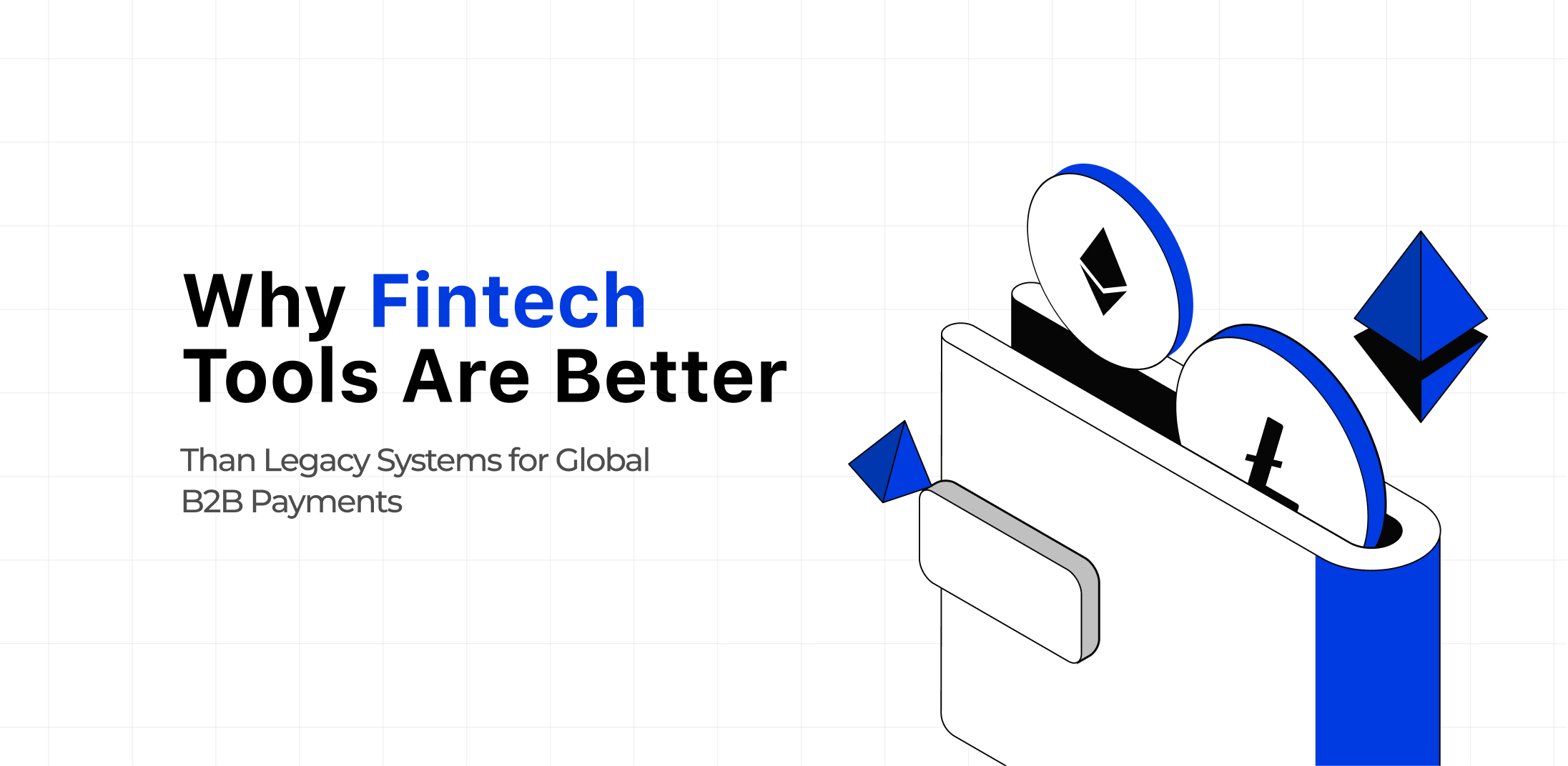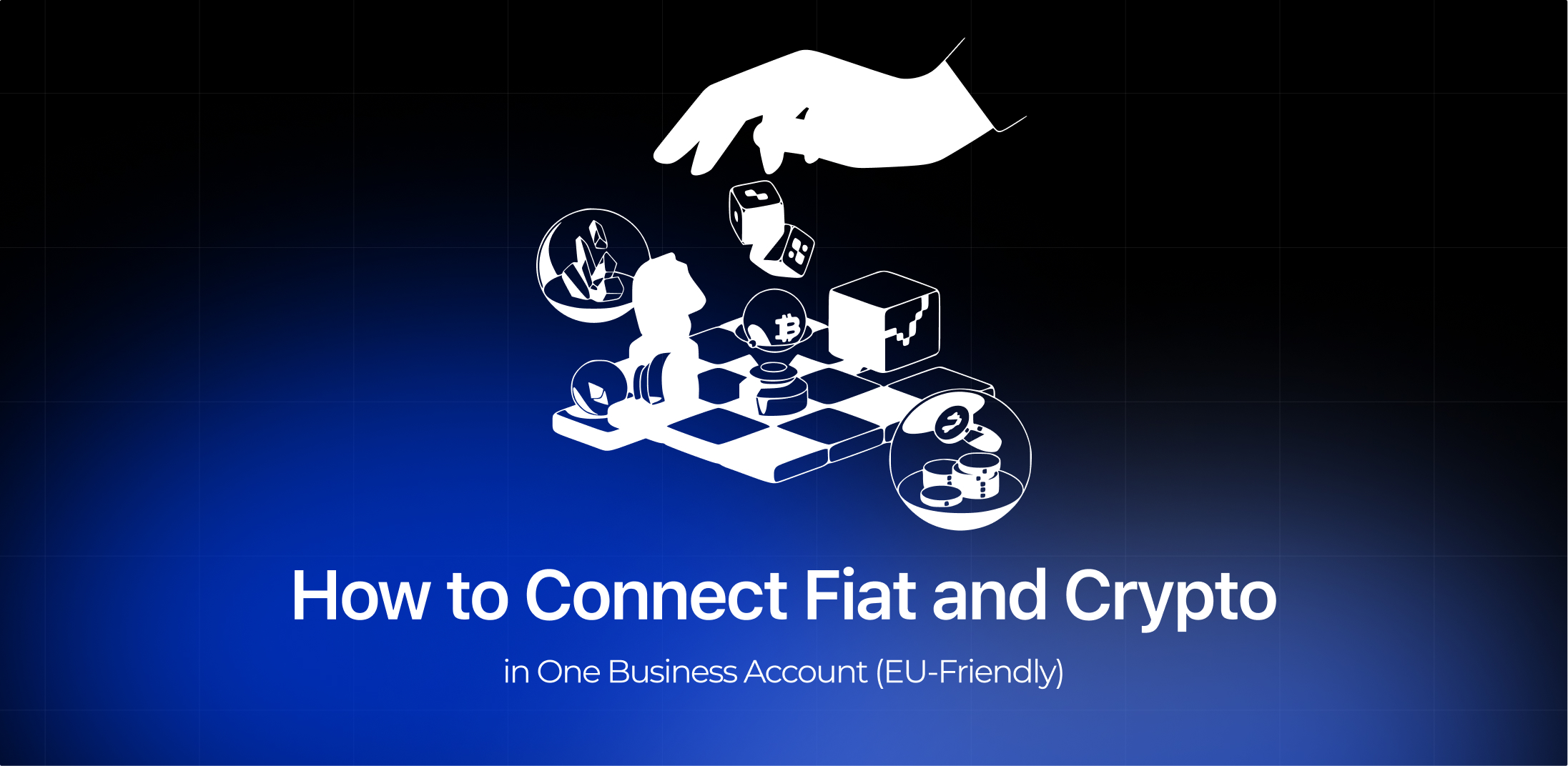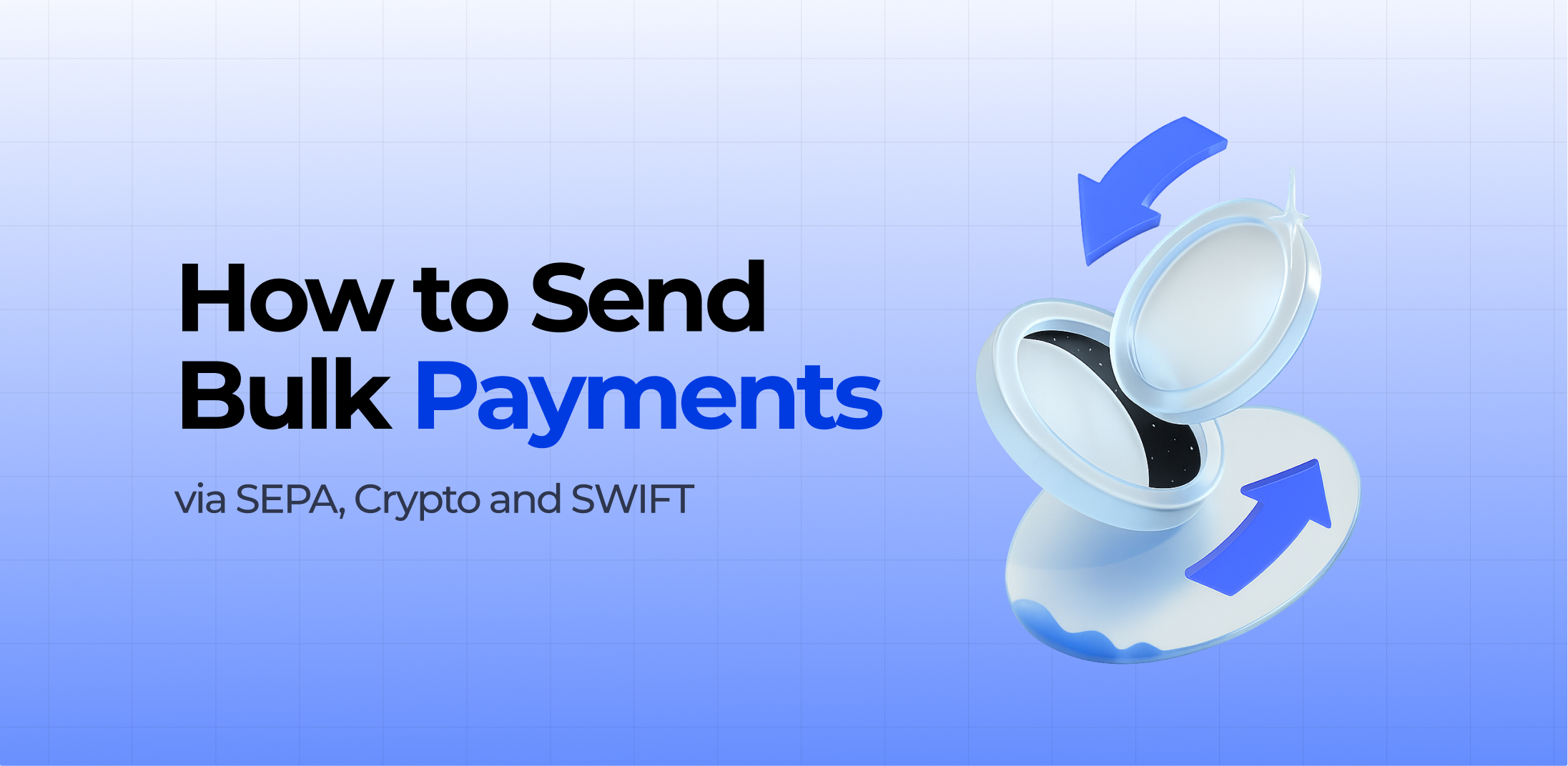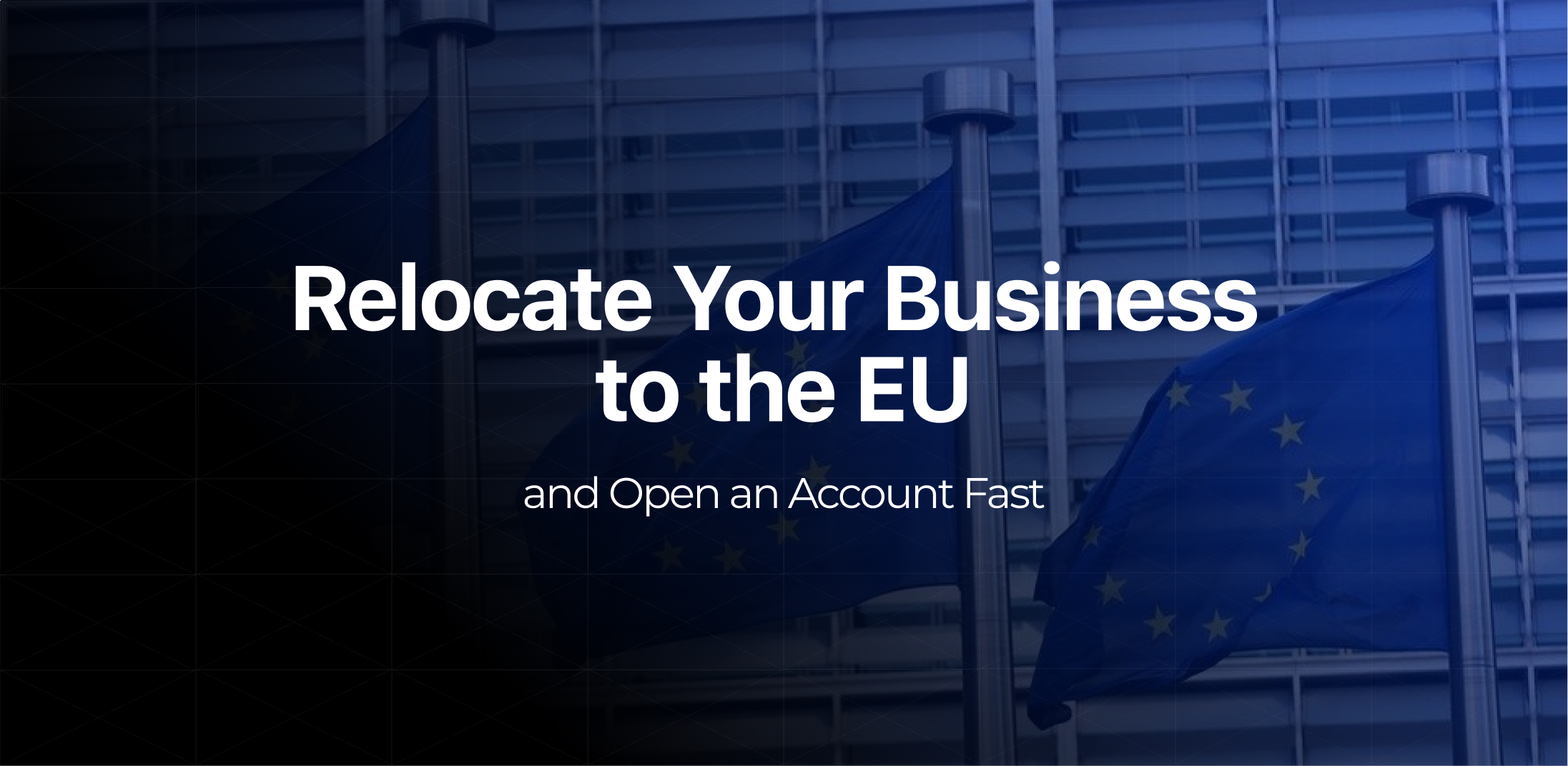In recent years, fintech has become a key player in transforming global B2B payments. As businesses expand internationally, the demand for faster, more efficient, and affordable solutions has surged. Traditional legacy systems, reliant on outdated technology and manual workflows, often fail to meet the evolving needs of modern business.
This is where fintech steps in: through cutting-edge technologies, fintech solutions have revolutionized how companies manage cross-border transactions. With advanced international payment solutions and stronger security features, fintech tools have replaced the slow, costly, and inefficient systems of the past with streamlined, automated, and scalable alternatives.
This article will delve into why fintech is rapidly gaining favor for global B2B payments. It offers significant advantages in terms of speed, cost-efficiency, and flexibility.
What Are Legacy Systems in B2B Payments?

Legacy systems in B2B payments refer to outdated software and infrastructure that rely on manual processes and siloed operations. These systems were designed decades ago and often struggle to meet the demands of modern business transactions. In many cases, legacy platforms are still based on older technologies that require manual intervention, leading to slow processing times and inefficiencies.
Additionally, they often lack the ability to seamlessly handle cross-border payments, which is essential for businesses operating globally. Transaction fees are typically high, as these systems involve multiple intermediaries, adding unnecessary costs. Moreover, complex compliance requirements further burden businesses, as manual reporting and monitoring are required to meet regulatory standards.
With these limitations, legacy systems are increasingly incompatible with the needs of businesses looking to streamline their operations, especially those managing a global business account and seeking more efficient, cost-effective solutions.
The Rise of Fintech in International Business Payments
European fintech, or financial technology, encompasses the application of advanced technologies to enhance and automate financial services. The main goal is to transform payment systems through digital tools like digital payments, blockchain, and cloud technology. By harnessing these innovations, fintech has revolutionized the financial industry, providing businesses with faster, more secure, and more affordable payment options.
Technological breakthroughs such as artificial intelligence, automation, machine learning, and blockchain have enabled fintech platforms to optimize payment processes, improve security, and minimize human errors. These solutions empower businesses to process payments more efficiently and securely, facilitating smooth global operations.
The rise of fintech adoption is clearly visible, with a sharp increase in B2B fintech transactions across the globe. In Europe, businesses are increasingly adopting these tools to manage international payments, streamline cash flow, and ensure regulatory compliance. As a result, fintech is swiftly becoming the go-to solution for businesses seeking enhanced payment performance.
Benefits of Fintech Tools Over Legacy Systems

Fintech solutions provide clear benefits over legacy systems, overcoming issues such as sluggish processing, excessive fees, and scalability limitations. Utilizing advanced technologies like AI, blockchain, and automation, fintech offers quicker, more affordable, and secure payment options. In this section, we’ll dive into how fintech tools enhance global B2B payments, offering solutions that outperform traditional systems.
Speed and Efficiency
A key benefit of fintech solutions is their ability to process transactions more swiftly than traditional systems. It facilitates real-time cross-border payments. These tools eliminate much of the manual work and paperwork, simplifying processes and reducing delays.
Automation of repetitive tasks boosts efficiency, enabling businesses to concentrate on growth instead of administrative tasks. This speed and automation lead to faster transaction times, improved cash flow, and a competitive advantage in the global marketplace.
Cost-Effectiveness
Fintech solutions bring substantial savings by lowering transaction fees, especially those associated with cross-border payments, which are typically costly with traditional systems. By streamlining operations, businesses can reduce overhead costs tied to manual tasks, paperwork, and third-party intermediaries.
Furthermore, fintech platforms offer enhanced scalability, enabling companies to expand globally without the burden of high costs or complications. This cost-efficient model allows businesses to process more transactions seamlessly, facilitating international growth while boosting profitability.
Global Reach and Scalability
Fintech solutions offer remarkable flexibility, enabling businesses to handle various currencies and facilitate international payments effortlessly. These tools accommodate a broad array of payment methods, such as mobile wallets and cryptocurrencies, meeting the needs of a diverse customer base.
Furthermore, fintech platforms integrate smoothly with local payment systems in different regions, ensuring seamless transactions and expanding global reach. This scalability allows businesses to grow internationally, entering new markets without the complications and costs typically involved in legacy systems.
Security and Compliance
Fintech solutions incorporate cutting-edge security measures, such as encryption and multi-factor authentication, to safeguard transactions from unauthorized access. These platforms also ensure enhanced compliance with global standards like GDPR and PSD2 through automated monitoring and reporting tools.
By utilizing machine learning, fintech tools improve fraud detection, spotting unusual activities in real-time. This integration of strong security and compliance capabilities helps businesses protect sensitive financial data, maintain customer trust, and stay aligned with international regulations.
The Case for Blockchain and Cryptocurrency in Global B2B Payments

Blockchain technology has revolutionized global B2B payments by providing a secure, transparent, and immutable system for processing transactions. Unlike traditional methods, blockchain operates on a decentralized network, where transactions are recorded on an unchangeable ledger. This ensures that the payment process is resistant to fraud and errors, giving businesses increased trust when executing cross-border transactions.
Cryptocurrency enhances the global payment experience by offering numerous advantages over conventional payment methods. One of the most significant benefits is reduced transaction fees, as cryptocurrencies eliminate the need for intermediaries like banks or payment processors, which typically charge high fees for international transactions.
In addition to lower fees, cryptocurrencies offer quicker settlement times. While traditional systems can take days to process payments, cryptocurrency transactions can often be completed in minutes or even seconds. As fintech platforms increasingly integrate cryptocurrencies into their systems, businesses can use digital currencies for payments, bypassing the delays and fees associated with traditional banking. By embracing blockchain and cryptocurrencies, companies can optimize their global payment processes, reduce costs, and speed up transactions.
Real-Life Examples of Fintech Tools Revolutionizing the Global Payment
Fintech tools are rapidly reshaping the landscape of global B2B payments, with a growing number of companies embracing these advanced solutions to optimize their operations. A key example of this transformation is PaySaxas, a frontrunner in the evolution of cross-border payments.
PaySaxas enables businesses to lower costs, speed up transaction times, and provide an expanded array of payment options. By incorporating cutting-edge technologies like blockchain and AI-powered fraud detection, PaySaxas boosts both security and operational efficiency. This enables businesses of all sizes to enter global markets with confidence, ensuring compliance with regional regulations.
The innovative approach of PaySaxas and other fintech platforms has revolutionized the payments process, allowing for faster, more affordable, and secure international transactions. These tools are fundamentally altering how companies interact with the global economy, making cross-border payments more accessible and streamlined than ever before.
The Future of Global B2B Payments: Why Fintech Is the Key to Success Solutions
To conclude, fintech tools outperform traditional systems by delivering quicker transaction processing, lower costs, better scalability, stronger security, and more flexibility. These advantages enable businesses to streamline their operations and maintain a competitive edge in the global market.
As the global payment ecosystem evolves, B2B companies must adopt fintech solutions to stay efficient, secure, and agile. Embracing these innovations is crucial for driving growth and capitalizing on emerging opportunities in international business transactions.








